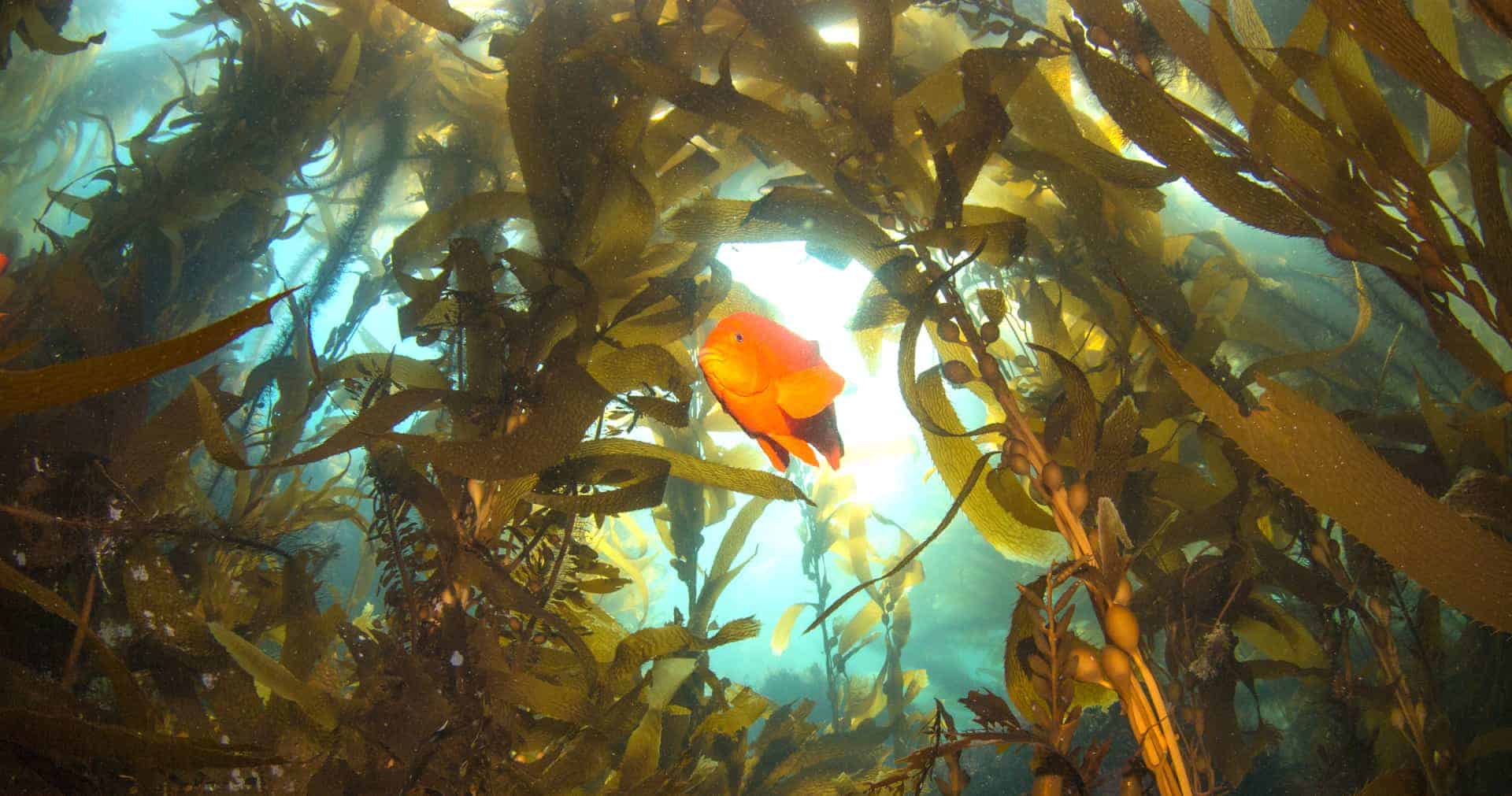
When you imagine a forest you may picture brushy woodlands, towering redwoods, or humid jungles. But just off the ragged coast of North America is another kind of forest, one submerged in the salty waters of the sea – the kelp forest.
Kelp forests stretch along its Pacific coastline and form a vast network of vibrant marine environments. While topside forests are shaped by plants, these underwater forests are instead composed of distinctive algae known as “kelp” that grow on rocky reef. But much like their drier parallels, the habitats formed by these overarching seaweeds are home to a rich abundance of life and support a dynamic and complex ecosystem.

Marine life isn’t the only thing that benefits from these kelp forests – people do too. The underwater ecosystem supports our communities through countless economic, recreational, educational, and intrinsic benefits, from fishing and tourism to scuba diving and birdwatching. That’s why California initiated the establishment of a network of Marine Protected Areas (MPAs) through the Marine Life Protection Act signed into law in 1999, to conserve this extraordinary marine environment for the prosperity of both wilderness and humankind.
However, all this protective zoning does little if not reinforced by equally robust monitoring and management, and that’s where Reef Check dives in to help. In 2006, concurrent with the establishment of the first MPAs, we established our California program to extend our reef surveying efforts to the state’s kelp forests. With the goal of producing monitoring data for the management and conservation of this unique ecosystem, we harnessed the power of the kelp forests’ most avid supporters – its citizens.
Since the program’s inception, we’ve trained and deployed over 2000 volunteer citizen scientist scuba divers to conduct over 1000 surveys counting fish, invertebrates, and kelp along California’s coastline and have expanded northward to Oregon and Washington. The resulting long-term monitoring data informs the public, scientists, resource managers, and policymakers in their decisions regarding the continued protection and management of our coastal waters. And in the course of this endeavor, we actively engage the public in the scientific process, fostering passionate stewardship for our oceans.
Today, these underwater forests need our support more than ever. Under the mounting pressure of climate change, the ecosystem is changing, affecting the diverse marine life that depends on it. But with the devoted vigilance of our citizen scientists, Reef Check is ready to capture these changes and protect our iconic kelp forests.

 Subscribe to Newsletter
Subscribe to Newsletter Donate
Donate Shop
Shop 0
0








